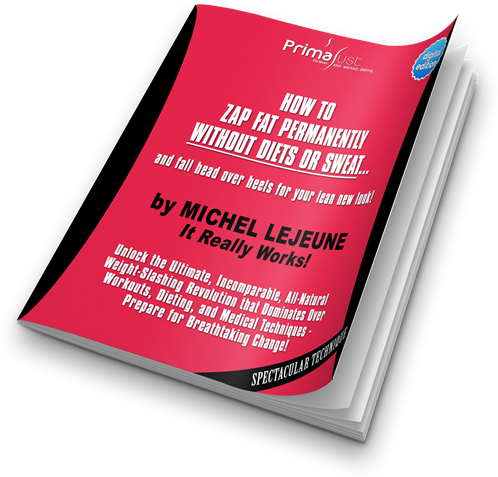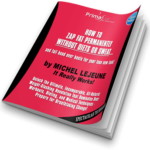In the fast-paced modern world, emotional eating from stress has become a prevalent issue, affecting the well-being of countless individuals. The connection between stress and unhealthy food consumption is a significant concern, leading to various physical and mental health challenges. In our previous blog we wrote about Barre Workouts for Weight Loss: Discover the Benefits of Toning. In this blog post, we’ll delve into the intricacies of emotional eating from stress and explore effective strategies to conquer it through mindful stress management techniques.
Understanding Emotional Eating From Stress
 Emotional eating, often triggered by stress, refers to the practice of consuming food in response to emotions rather than physical hunger.
Emotional eating, often triggered by stress, refers to the practice of consuming food in response to emotions rather than physical hunger.
The triggers for emotional eating can range from work-related pressures to personal challenges, and even boredom.
The connection between stress and food cravings is profound, as stress can lead to hormonal changes that stimulate appetite, particularly for sugary and fatty foods.
This unhealthy cycle, if left unchecked, can have detrimental effects on both physical and mental health, contributing to weight gain, low self-esteem, and heightened stress levels.
The Vicious Cycle: Stress and Emotional Eating
 The relationship between stress and emotional eating forms a vicious cycle.
The relationship between stress and emotional eating forms a vicious cycle.
Stress triggers the release of cortisol, commonly known as the stress hormone.
This hormone not only stimulates cravings for comfort foods but also promotes fat storage, particularly in the abdominal area.
Consuming these foods may provide temporary relief, but it often leads to guilt and further stress, perpetuating the cycle.
Moreover, emotional eating can exacerbate stress levels, as individuals may feel out of control and unable to manage their eating habits, thus increasing overall stress.
Mindful Stress Management Techniques
Practicing Mindfulness and Awareness
 In the quest to conquer emotional eating driven by stress, integrating mindfulness and awareness techniques proves to be paramount.
In the quest to conquer emotional eating driven by stress, integrating mindfulness and awareness techniques proves to be paramount.
Mindfulness meditation stands as a powerful tool that empowers individuals to observe their thoughts and emotions without judgment.
This practice enhances self-awareness, allowing individuals to identify emotional triggers and responses that contribute to overeating.
Techniques such as mindful eating can transform the act of dining into a more fulfilling experience.
By savoring each bite, individuals become attuned to their body’s signals, promoting a sense of satiety and reducing the tendency to overindulge.
Stress-Relieving Physical Activities
 Engaging in regular physical activities provides a highly effective avenue for releasing endorphins, the body’s natural stress-relievers.
Engaging in regular physical activities provides a highly effective avenue for releasing endorphins, the body’s natural stress-relievers.
When you exercise, your body produces these mood-enhancing chemicals that can significantly reduce stress and anxiety levels.
The benefits extend beyond just mood enhancement; physical activity can also help curb stress-related cravings, preventing the inclination to turn to food for emotional comfort.
Activities like yoga, in particular, wield a profound impact on stress-related eating patterns.
This practice not only involves physical movement but also emphasizes mindfulness and relaxation.
Through yoga, individuals cultivate self-awareness and emotional regulation – both vital components in conquering the cycle of emotional eating.
Nurturing a Balanced Lifestyle
 Prioritizing a balanced lifestyle is a cornerstone in the battle against stress-induced emotional eating.
Prioritizing a balanced lifestyle is a cornerstone in the battle against stress-induced emotional eating.
Adequate sleep emerges as a foundational element in nurturing stress reduction and emotional equilibrium.
Sleep directly impacts cortisol levels, the stress hormone, and getting sufficient rest can help maintain its balance in the body.
Supporting mental health through a nutritious diet is equally important.
When you provide your body with the essential nutrients it needs, you enhance its ability to manage stress effectively.
Additionally, embracing hobbies and activities that bring joy and relaxation presents alternative outlets for stress.
These pursuits decrease the reliance on food for emotional comfort, providing healthier coping mechanisms.
Effective Time Management
 Strategic time management emerges as a potent stress-alleviating strategy that effectively mitigates triggers for emotional eating.
Strategic time management emerges as a potent stress-alleviating strategy that effectively mitigates triggers for emotional eating.
By prioritizing tasks and creating a structured daily routine punctuated with self-care breaks, the feeling of being overwhelmed is significantly diminished.
Techniques such as setting attainable goals and managing expectations contribute to reducing unnecessary stressors.
As you learn to manage your time more effectively, you foster a healthier approach to managing life’s challenges.
This approach allows you to address stressors with a clear mind, reducing the tendency to resort to food as a coping mechanism.
Building a Supportive Network
 During times of adversity, seeking support from a network of friends, family, or professionals can offer substantial relief from stress-induced emotional eating.
During times of adversity, seeking support from a network of friends, family, or professionals can offer substantial relief from stress-induced emotional eating.
The act of connecting with a supportive community creates a space for open conversations about stress and emotional eating patterns.
Sharing emotions and experiences not only provides comfort but also empowers individuals to break free from detrimental emotional eating cycles.
By building a strong support network, you create a foundation of understanding and empathy that can help you navigate stress in healthier ways.
Putting Techniques into Action: Real-Life Scenarios
Let’s walk through applying these mindful stress management techniques in different scenarios.
Consider a scenario where work-related stress triggers the urge to reach for unhealthy snacks.
By practicing mindfulness, one can identify the emotional trigger and choose to engage in a stress-relieving physical activity instead.
Real-life case studies demonstrate individuals who successfully conquered emotional eating through these techniques, highlighting the effectiveness of these strategies.
Monitoring Progress and Adapting Strategies
Let’s delve into practical applications of these mindful stress management techniques across various scenarios.
Imagine a situation where the demands of work trigger the temptation to indulge in unhealthy snacks.
Through the practice of mindfulness, individuals can pinpoint the emotional trigger and opt for a stress-relieving physical activity instead.
This shift not only curbs impulsive eating but also channels stress into a constructive outlet, reinforcing the mind-body connection.
Conclusion
Conquering emotional eating from stress is a transformative journey that holds the key to improved overall well-being.
By mastering mindful stress management techniques, individuals can break free from the cycle of emotional eating and regain control over their relationship with food and stress.
Through practicing mindfulness, engaging in stress-relieving activities, nurturing a balanced lifestyle, managing time effectively, and building a supportive network, the path to a healthier and more fulfilling life becomes achievable.
Start taking proactive steps today to embrace a life free from the shackles of emotional eating from stress, and experience the empowerment that comes from mastering these mindful stress management techniques.
Are you ready to take the first step toward a healthier, happier you?
In this blog, we've explored the intricate relationship between stress and emotional eating, uncovering the challenges it poses to your physical and mental well-being.
But now, it's time to turn the page and discover a powerful solution: the PrimaJust weight loss method.
Imagine being able to shed 1-3 pounds per week effortlessly, without the need for strict diets or exhausting exercise routines.
The exact method to unlock your metabolism for all-natural weight loss is within your reach, and it's waiting for you in our still-free report.
Download it now and embark on your journey to a stress-free, healthier life.
Say goodbye to emotional eating and hello to a happier, more confident you.
Don't wait any longer; click the link below and take control of your well-being today.
[Source]Free Report
Discover the secret to losing weight effortlessly without dieting or exercising by booking your free Weight Loss Clarity Call.
Discover new possibilities with these enlightening related blog posts
-
How to Stop Emotional Eating from Stress: 10 Effective Strategies
Emotional eating is a common response to stress, where individuals turn to food for comfort…
-
Mindful Eating for Emotional Wellness: Nurturing Balance
In today's fast-paced and stress-filled world, finding solace in food during emotionally challenging times is…
-
Mindful Eating and Emotional Hunger: A Solution for Wellness
Emotional hunger is a common struggle many people face, leading to unhealthy eating habits and…
















